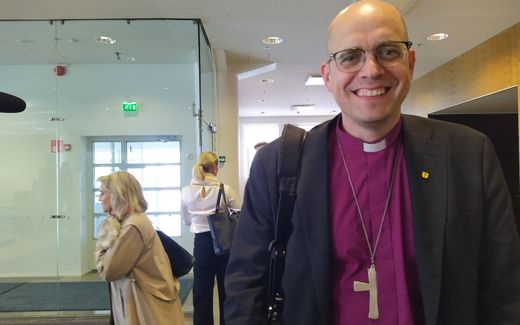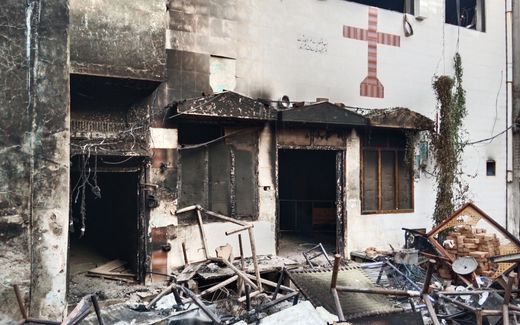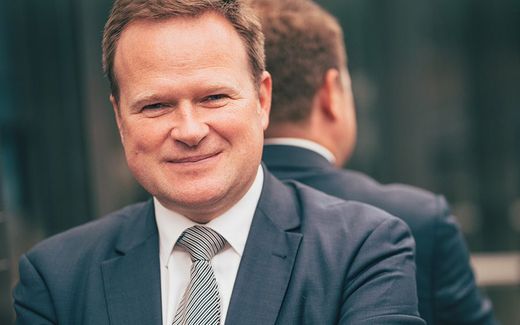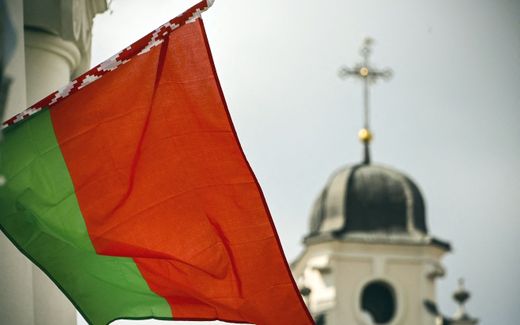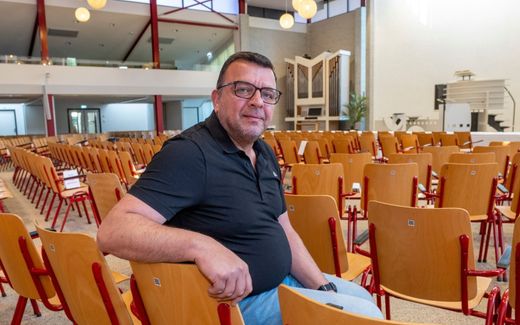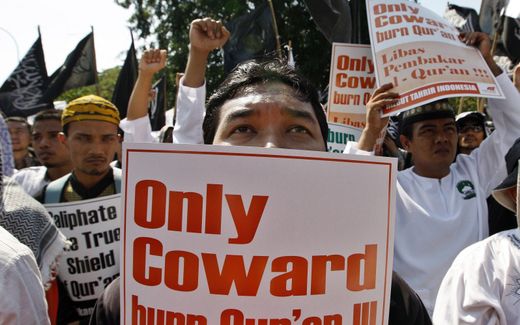Christians worldwide increasingly persecuted, perpetrators go unpunished
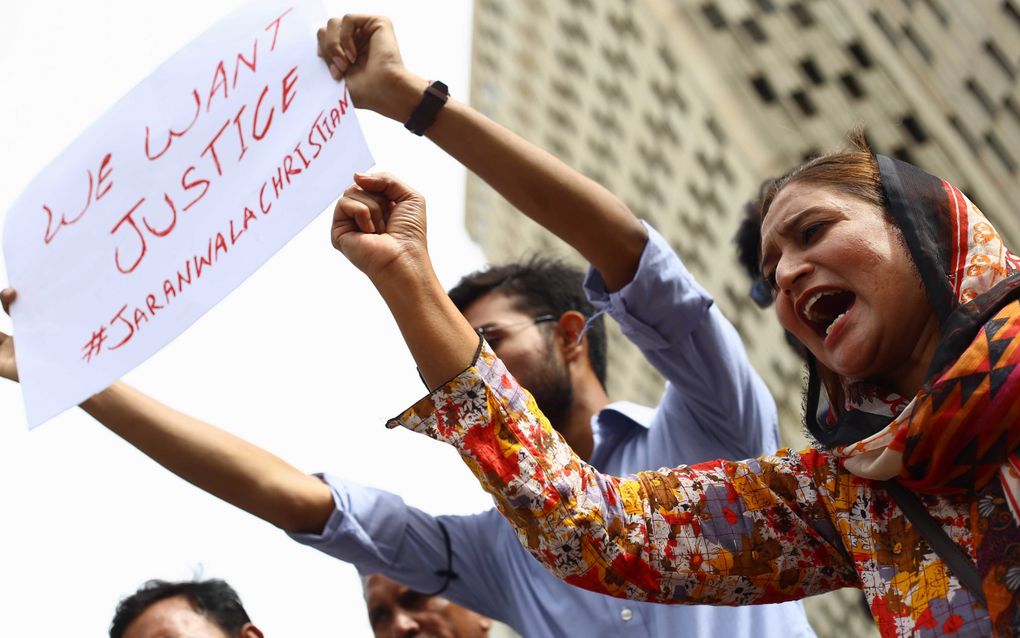
Members of the Christian community attend a protest against Faisalabad violence incidents, in Karachi, Pakistan. Photo EPA, Shahzaib Akber
European Union
Never before have so many Christians been persecuted. At the same time, perpetrators are increasingly getting away with it. “Western countries need to stand up for their values.”
“Flee from your homes and run for your lives. We cannot protect you from this overpowering force.” Pakistani police made that call to Christians in Jaranwala, Pakistan, in August. Thousands of Muslims took to the streets of that city after Christians were accused of blasphemy. Witnesses speak of burnt-out and looted churches and destroyed homes of Christians.
The attacks in Jarawala are just one example of a growing trend. “In general, there is a decline in religious freedom, as several countries are moving towards autocratic and dictatorial forms of government,” Thomas Bjerg Mikkelsen told the Danish Christian daily Kristeligt Dagblad. Mikkelsen is a member of the board of Tænketanken for Forfulgte Kristne (Think Tank for Persecuted Christians). “In India, for example, the Christian and Muslim minorities are seen as threatening the country’s Hindu culture. In China, technology is increasingly used for mass surveillance of religious minorities. And in Pakistan, Christians are exposed to a new wave of violence. Developments in Russia and many African countries are also pointing in the wrong direction.”
Africa
Yet the centre of gravity lies elsewhere: Africa. According to Jens Kristian Lund Jensen, general secretary of Open Doors Denmark, by 2022, 90 per cent of recorded killings of Christians worldwide were committed in Nigeria, Africa’s most populous country. In ten Nigerian states, Mr. Jensen tells Kristeligt Dagblad, “the death penalty has already been introduced if you convert from Islam. Today, we see that many of the attacks against Christians instead take place in central Nigeria.”

According to Jens Kristian Lund Jensen, villages in central Nigeria are attacked at night, and Christians are shot dead by Islamist groups who also systematically destroy their crops. ““And when they venture back to see if there is anything left of their house and crops, they are attacked again.”
Other African countries have also become unsafe for Christians. The growing pressure comes in some cases from the regime but predominantly from Islamist groups such as Boko Haram, al-Shabaab and Fulani militants who have room to manoeuvre in compliant, weak or unstable states.
Attacks
The perpetrators of these attacks are getting away with it in a growing number of cases, states Aid to the Church in Need. This international Catholic pastoral aid organisation monitors religious persecution worldwide. To the Dutch Christian daily Reformatorisch Dagblad, they state that "police and authorities conspire with perpetrators."
For example, Dennis Peters, spokesman for the Dutch branch of the Catholic organisation, tells the story of 15-year-old Sabah Masih. When the Christian girl’s Muslim neighbour kidnapped her in 2022, the police refused to take action. The teen allegedly converted to Islam and married her kidnapper. Voluntarily. As a minor.
Religious extremism
A German government report published earlier this year, shows that there are currently some 56 countries that have legislation that violates human rights. These laws prevent religious minorities, in particular, from living out their faith freely. As the world’s largest religious community, Christians are particularly affected, said Frank Schwabe in February to the Bayerischer Rundfunk. Mr. Schwabe is the Federal Government Commissioner for Freedom of Religion and Belief. “That has something to do with the large number of Christians worldwide, but of course also with the development of religious extremism, in connection with Islamism or a national Hinduism, as we see it in India, for example.”
Values
But what can be done about these developments? Aid organisations in the Netherlands and Denmark agree: “There are more Western countries that need to wake up and focus on the fact that we need to stand together and speak up for our values,” says Mr Jensen of Open Doors Denmark. “We need to influence the states we can influence, and we need to play a bigger role in the UN, which the Organization of Islamic Cooperation (OIC) has been very effective in influencing. We have seen this most recently in connection with the Koran burnings.”
Aid to the Church in Need shares this view. “The silence of the international community contributes to this culture of impunity,” it states in a recent report. This particularly concerns regimes strategically important to the West, such as China and India. “They are not subjected to international sanctions or other consequences for their violations of religious freedom,” says Dennis Peters. “That is handled very pragmatically.”
The spokesperson observes that firm talks on human rights are held less than in the past. And that while it is very important to exert pressure from the international community. “This can be done by mentioning it during a trade deal or development cooperation and attaching consequences to it.”
Related Articles


